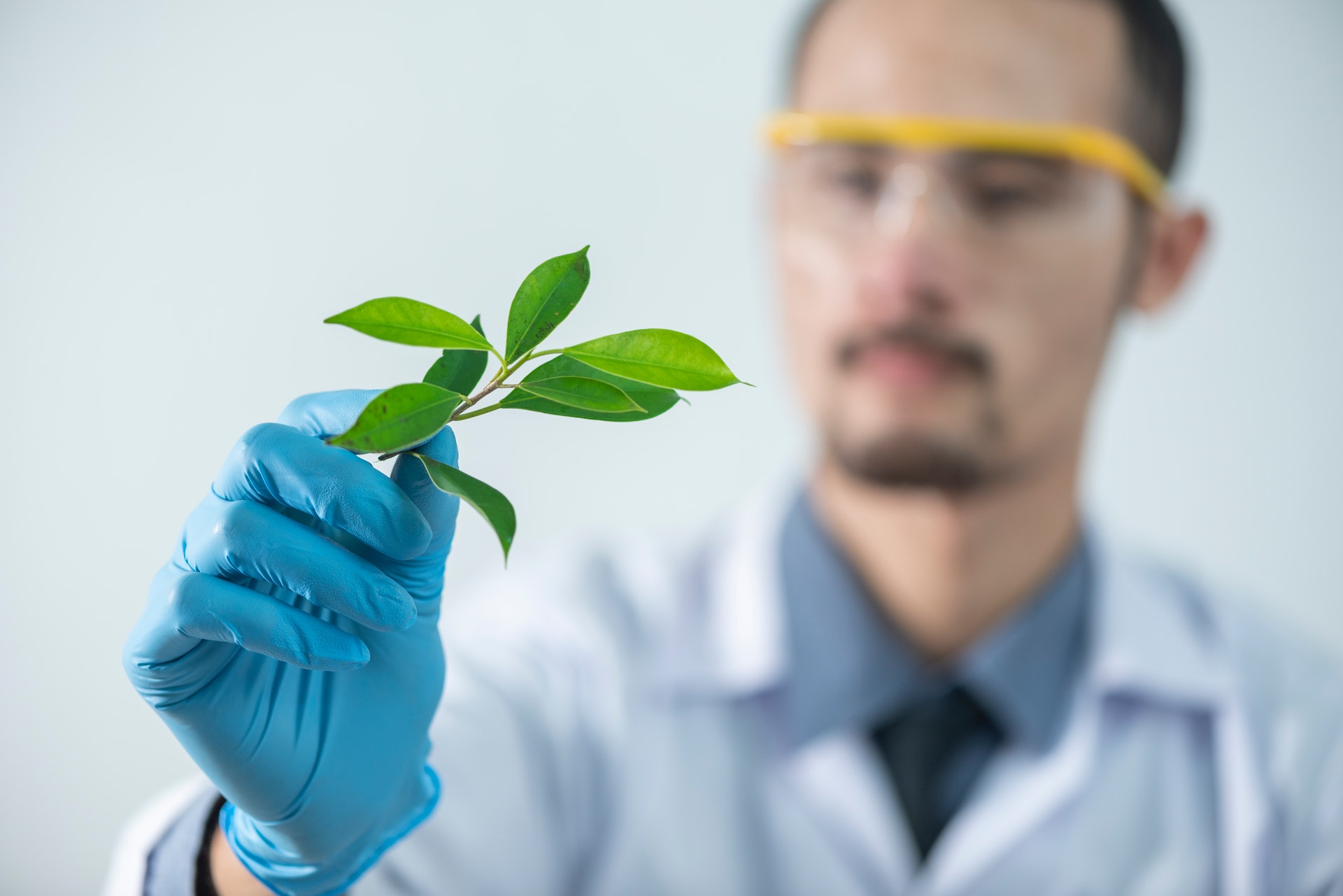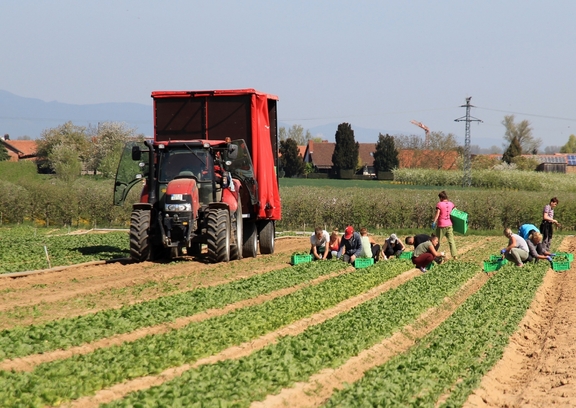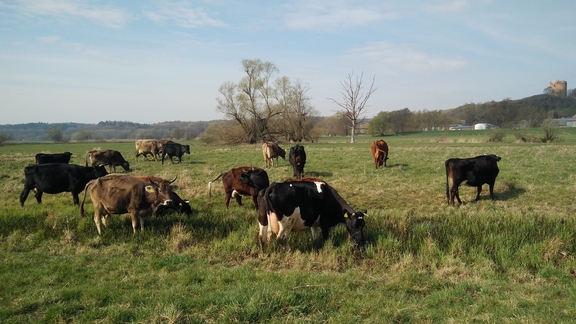Brussles, 30.03.2021
Dear Vice President of the European Commission Timmermans,
as civil society and business organisations we are deeply alarmed about attempts to deregulate an emerging new generation of genetically modified (GM) crops and animals that are engineered with new genomic techniques [1], such as CRISPR/Cas. The European Court of Justice (ECJ) has ruled that a new generation of genetically modified organisms must be regulated under the EU’s existing GMO laws [2]. Their exclusion from the EU GMO directive “would compromise the objective of protection pursued by the directive and would fail to respect the precautionary principle which it seeks to implement,” according to the Court (para 53 of the ruling). The agricultural biotech industry claims these GM organisms carry only small DNA changes, which could also arise naturally, and therefore do not pose any risks. However, scientific publications show that new techniques of genetic modification allow developers to make significant genetic changes, and that these changes can be very different from those that happen in nature [3] Products obtained by genomic techniques are novel and the technical process fundamentally different to traditional breeding techniques, which is why products from genomic techniques are covered by patents. Moreover, new techniques of genetic modification can cause a range of unwanted genetic modifications that can result in the production of novel toxins or allergens, or in the transfer of antibiotic resistance genes [4]. But also intended modifications can result in traits which could raise food safety, environmental or animal welfare concerns [5].
The application of new genomic techniques for breeding farm animals also raises serious animal welfare and ethical concerns. This, amongst other reasons, is due to the high number of animals required in the test phase to produce viable offspring and the lack of predictability or stability of the edits to the animals [6]. To genetically modify animals, plants or microorganisms with new genomic techniques could therefore pose a danger to consumers, animal welfare and the environment.
As Vice President of the European Commission, you will be involved in three upcoming decisions that are relevant to the matter. We urge you to ensure that all organisms derived from genomic techniques continue to be regulated in accordance with existing EU GMO standards, that their products do not enter our food supply illegally and that the EU takes a clear stance against the release of gene drive organisms into the environment.
(1) European Commission decision on the regulation of new genomic techniques
The European Commission is expected to set out its views on the future regulation of new genomic techniques at the end of April, based on an in-house study mandated by the Council of Ministers [7]. The responsible European Commissioner, Stella Kyriakides, appears to view GM technology as a way to enhance the sustainability of farming. We are concerned that she may want to propose an exclusion of certain genomic techniques from the EU’s GMO laws, as proposed by the agricultural biotech industry.
It is not realistic to expect new genomic techniques to contribute to reducing the negative impacts of farming on the environment and climate. Promises to create drought-resistant GM crops and to reduce the need for pesticides are as old as GM technology itself [8]. These promises have failed, not least because stable yields in an unstable climate are a matter of sound farming practices and locally adapted seeds, of which there are already many successful examples [9]. In addition, products from genomic techniques are covered by patents. Patents on seeds have negative economic consequences for the agricultural sector, including monopolisation and concentration of the seed market.
- We urge you to oppose any weakening of EU GMO regulations, and to ensure the full application of the ECJ ruling of 25 July 2018 in line with the precautionary principle. To achieve this, the European Commission should support member states’ efforts to prevent the illegal contamination of EU imports with unauthorised GM crops created with new genomic techniques [10].
(2) Announced UK regression on EU GMO standards
The UK government is conducting a public consultation on whether to include or exclude new breeding techniques including genetic engineering in its definition of Genetically Modified Organisms (GMOs). If they change their current definition, this would clearly weaken their national health and environmental standards vis-à-vis those of the EU [11].
- We ask you to support a strong European Commission response to the UK’s consultation regarding a possible change in regulations, which would represent a clear breach of the TCA’s principle of non-regression. Please ask the UK government to drop its plans or face the consequences with regards to future trade in agricultural goods between the EU and the UK.
(3) EU position on the global regulation of gene drive organisms
A particularly worrying application of new genomic techniques are gene drives. This technology can genetically engineer, decimate or eradicate entire populations of wild organisms, of which most prominently insects [12]. In times of ecological crisis, when one million species are under threat, we simply cannot experiment with a technology that has aptly been termed “extinction on demand” [13]. A first representative poll among citizens from eight EU countries shows high levels of opposition to and very low levels of support for the use of gene drive technology in the environment [14].
The European Commission has declared it wants the EU to be a leader in the defence of nature. It will represent the EU in the upcoming negotiations under the UN Convention on Biological Diversity and the Cartagena Protocol.
- We ask you to support a global moratorium on the environmental release of gene drive organisms for precautionary reasons at international level, as called for by the European Parliament [15].
Vice President of the European Commission, the outcomes of these three policy processes will determine the safety of our food supply, and the future health of our environment and climate. We urge you to make sure the ECJ ruling will be fully implemented. We count on you to uphold the precautionary principle, safeguard a high level of protection and the right of farmers and consumers alike, to choose what they plant and eat. This requires that all new genomic techniques are regulated, thoroughly risk assessed and labelled.
Signatories
International
Biodynamic Federation Demeter International
FIAN International
Navdanya International
Europe
Corporate Europe Observatory
European Coordination Via Campesina (ECVC)
Forum Civique Européen
Four paws
Friends of the Earth Europe
Greenpeace
IFOAM Organics Europe
Pesticide Action Network Europe
Slow Food Europe
WeMove Europe
Austria
Arche Noah
GLOBAL 2000 - Friends of the Earth Austria
ÖBV-Via Campesina Austria
Belgium
Agroecology In Action
Amis de la Terre Belgique
BioForum
Boerenforum
CNCD-11.11.11.
FIAN Belgium
FUGEA (Fédération Unie de Groupements d'éleveurs et d'agriculteurs)
Inter Environnement Wallonie (IEW)
Libère Terre, association citoyenne et paysanne
Mouvement d'action paysanne (MAP)
Natagora
Nature & Progrès Belgique
Quinoa
Réseau Meuse Rhin Moselle pour les semences paysannes et citoyennes
Terre-en-vue
UNAB Union des Agrobiologiqtes belges
Velt
Vereniging voor Ecologisch Leven en Tuinieren
Vitale Rassen
vzw Climaxi
Wervel
Croatia
Croatian Organic Farmers Associations Alliance - HSEP
Zelena akcija / Friends of the Earth
Croatia ZMAG
Cyprus
FoE Cyprus
Czech Republic
Demeter Czech & Slovak Republic Hnutí DUHA - Friends of the Earth Czech Republic
Members of S-0-S Slovenský ochranársky snem:
Barborjak Sabina, Guldan Fero, Homolová Zuzana, Huba Mikuláš, Hudeková Zuzana, Kalašová Gabika, Lacinová Ľubica, Líška Branislav, Medal Richard, Medalová Klaudia, Nvota Juraj, Pačenovský Samuel, Párnická Soňa, Pavlovská Patrícia, Peciar Tomáš, Pifko Henrich, Szabó Štefan, Szabová Lucia, Šremer Pavel, Topercer Ján, Trubíniová Ľubica, Veverka Miloš, Zamkovský Juraj, Ziman Pavol, Kolková Ľubica
STUŽ - Společnost pro trvale udržitelný život
Denmark
Dansk Vegetarisk Forening
Demeterforbundet i Danmark
Foreningen for Biodynamisk Jordbrug
Frie Bønder Levende Land
Grøn Hverdag Landsforeningen Praktisk Økologi
NOAH - Friends of the Earth Denmark
Slow Food København
Finland
Biodynaaminen yhdistys - Biodynamiska föreningen
Esvy
France
Confédération paysanne
Demeter France
MABD Mouvement de l'Agriculture Biodynamique
Objectif Zéro OGM
OGM Dangers
Pollinis Sciences Citoyennes
Terres d'abeilles
Germany
BUND - Bund für Umwelt und Naturschutz Deutschland e.V.
Kulturpflanzen- und Nutztiervielfalt e.V.
Apfel Gut e.V.
Arbeitsgemeinschaft bäuerliche Landwirtschaft (AbL) e.V.
Bioland
German Association of Organic Farmers, Food Processors and Retailers (BÖLW e.V.)
Bundesverband Gruene Liga
Demeter e.V.
Fördergemeinschaft Ökologischer Obstbau (FÖKO e.V.)
Fruchtwechsel e.V.
GLS Bank
Interessengemeinschaft für gentechnikfreie Saatgutarbeit (IG Saatgut)
Naturland
Save Our Seeds
Slow Food Germany
Umweltinstitut München
Verbraucherzentrale Bundesverband e.V.
Zukunftstiftung Landwirtschaft
Greece
Alternative Community Peliti
Association of Organic Farmers of Northern Greece
Dimitra"Organic farmers association of Ilia
Organic Markets of Attica
Hungary
Biodinamikus Közhasznú Egyesület
Fenntarthatóság Felé Egyesület / Towards Sustainability Association
Hungarian Research Institute of Organic Agriculture – OMKi
Közép-magyarországi Zöld Kör
Magyar Természetvédők Szövetsége / Friends of the Earth Hungary
Ireland
ISPCA
Italy
Demeter Italia
Italian Association of Organic Agriculture (AIAB)
Slow Food Italia
Asociazione Rurale Italiana (ARI)
Latvia
Permakultura
Lithuania
Gamtinės Žemdirbystės Institutas
Lietuvos biodinaminės žemdirbystės ir perdirbimo asociacija Biodinamika LT
Vytautas Magnus University Agricultural Academy
Luxembourg
Oikopolis Groupe
SEED Luxembourg asbl
Vereenegung fir Biolandwirtschaft Lëtzebuerg a.s.b.l.
Malta
FoE Malta
Nadir
Netherlands
Slow Food Netherland
Stichting Demeter
Vereniging voor Biologisch-Dynamische Landbouw en Voeding
Norway
Biologisk-dynamisk Forening
Poland
Demeter Polska
Ekoland lubelski
Fundacja Mała Wielka Zmiana
Fundacja Rolniczej Różnorodności Biologicznej AgriNatura
Fundacja Strefa Zieleni
Fundacja Zielone Swiatło
Instytut Spraw Obywatelskich/The Civil Affair Institute
Społeczny Instytut Ekologiczny
Stowarzyszenie Polska Wolna od GMO
Stowarzyszenie producentów ekologicznych EKOŁAN
Zielone Wiadomości
Portugal
AEPGA - Associação para o Estudo e Protecção do Gado Asinino
Circulos de Sementes
CNA - Confederação Nacional da Agricultura
Confederacao Nacional Da Agricultura
GAIA-Environmental Action and Intervention Group
Movimento Cívico Ar Puro
NDMALO-GE
Palombar - Associação de Conservação da Natureza e do Património Rural
Parents for Future Portugal
Plataforma Transgénicos Fora
Rede para o Decrescimento
Térrea - Associação para a Cultura, o Desenvolvimento Sustentável e a Cidadania
TROCA-Plataforma por um Comércio Internacional Justo
Wakeseed
ZERO, Associação Sistema Terrestre Sustentável
Romania
Eco Ruralis
Hosman Durabil
Slovakia
Aeternus vita
Agro-eko fórum
Centrum environmentálnych aktivít - CEA
CEPTA – Centrum pre trvaloudržateľné alternatívy
Druživa
EKOTREND Slovakia - Zväz ekologického poľnohospodárstva
Members of S-0-S Slovenský ochranársky snem:
Barborjak Sabina, Guldan Fero, Homolová Zuzana, Huba Mikuláš, Hudeková Zuzana, Kalašová Gabika, Lacinová Ľubica, Líška Branislav, Medal Richard, Medalová Klaudia, Nvota Juraj, Pačenovský Samuel, Párnická Soňa, Pavlovská Patrícia, Peciar Tomáš, Pifko Henrich, Szabó Štefan, Szabová Lucia, Šremer Pavel, Topercer Ján, Trubíniová Ľubica, Veverka Miloš, Zamkovský Juraj, Ziman Pavol, Kolková Ľubica
Občianska iniciatíva Slovensko bez GMO
SLOBODA ZVIERAT
Slow Food Pressburg
SOSNA
Spoločnosť pre trvalo udržateľný život- Society for Sustainable Living Slovakia
Vcelársky Ekologicky Spolok Slovenska
Zóny bez pesticídov
Zväz výrobcov krmív, skladovateľov a obchodných spoločností
Žyvot Rusyna
Slovenia
EkoSemena - OrganicSeeds Institute & Semenjalnica
Umanotera
Združenje Demeter Slovenija
Spain
Amigos de la Tierra
Sweden
NordBruk
Svenska Demeterförbundet
United Kingdom
Biodynamic Association Certification UK
Econexus
GM Watch
Land Workers' Alliance
References
[1] According to the European Council (https://eur-lex.europa.eu/legal-content/EN/TXT/PDF/?uri=CELEX:32019D1904&from=EN) new mutagenesis techniques (i.e. new genomic techniques) must be defined in the light of the ECJ ruling in case C-528/16. They therefore include all genetic modification techniques “which appeared or were mostly developed since Directive 2001/18 was adopted” (para 51 of the Ruling of the European Court of Justice, 25 July 2018, Case C 528/16, http://curia.europa.eu/juris/document/document.jsf?text=&docid=204387&pageIndex=0&doclang=EN&mode=req&dir=&occ=first&part=1&cid=709582
[2] Arguing that “the risks linked to the use of those new techniques/methods of mutagenesis might prove to be similar to those which result from the production and release of a GMO through transgenesis. It thus follows from the material before the Court, first, that the direct modification of the genetic material of an organism through mutagenesis makes it possible to obtain the same effects as the introduction of a foreign gene into that organism and, secondly, that the development of those new techniques/methods makes it possible to produce genetically modified varieties at a rate and in quantities quite unlike those resulting from the application of conventional methods of random mutagenesis.“ (para. 48 of ECJ ruling quoted in note [1])
[3] Eckerstorfer MF et al (2019). An EU perspective on biosafety considerations for plants developed by genome editing and other new genetic modification techniques (nGMs). https://doi.org/10.3389/fbioe.2019.00031
Kawall, K., Cotter, J. & Then, C. Broadening the GMO risk assessment in the EU for genome editing technologies in agriculture. Environ Sci Eur 32, 106 (2020). https://doi.org/10.1186/s12302-020-00361-2
[4] Sansbury, B.M., Hewes, A.M. & Kmiec, E.B. Understanding the diversity of genetic outcomes from CRISPR-Cas generated homology-directed repair. Commun Biol 2, 458 (2019) https://doi.org/10.1038/s42003-019-0705-y
Norris, A.L., Lee, S.S., Greenlees, K.J. et al. Template plasmid integration in germline genome-edited cattle. Nat Biotechnol 38, 163–164 (2020). https://doi.org/10.1038/s41587-019-0394-6
Rezza, A., Jacquet, C., Le Pillouer, A. et al. Unexpected genomic rearrangements at targeted loci associated with CRISPR/Cas9-mediated knock-in. Sci Rep 9, 3486 (2019) https://doi.org/10.1038/s41598-019-40181-w
Robinson, Cl. Antoniou, M. & Fagan J. GMO myths and truths. Updated with new information on ‘new GM’ techniques, Earth Open Source, Fairfield, (2018) (4th ed)
Adikusuma, F., Piltz, S., Corbett, M.A. et al. Large deletions induced by Cas9 cleavage. Nature 560, E8–E9 (2018). https://doi.org/10.1038/s41586-018-0380-z
Rayner, E. et al. CRISPR-Cas9 Causes Chromosomal Instability and Rearrangements in Cancer Cell Lines, Detectable by Cytogenetic Methods, The CRISPR Journal. Dec 2019. pp. 406-416. http://doi.org/10.1089/crispr.2019.0006
[5] Eckerstorfer MF et al (2019). An EU perspective on biosafety considerations for plants developed by genome editing and other new genetic modification techniques (nGMs) https://doi.org/10.3389/fbioe.2019.00031
[6] Ormandy EH, Dale J, Griffin G. Genetic engineering of animals: ethical issues, including welfare concerns. Can Vet J. 2011;52(5):544-550. https://www.ncbi.nlm.nih.gov/pmc/articles/PMC3078015/
[7] Council Decision (EU) 2019/1904 on the study on new genomic techniques, https://eur-lex.europa.eu/legal-content/EN/TXT/PDF/?uri=CELEX:32019D1904&from=EN. Scope of the European Commission’s study: https://ec.europa.eu/food/plant/gmo/modern_biotech/new-genomic-techniques_en
[8] Greenpeace International (2015). Twenty Years of Failure. Why GM crops have failed to deliver on their promises: https://www.greenpeace.org/static/planet4-international-stateless/2015/11/7cc5259f-twenty-years-of-failure.pdf
[9] Chable, V. et al. A. Embedding Cultivated Diversity in Society for Agro-Ecological Transition. Sustainability 2020, 12, 784. https://doi.org/10.3390/su12030784
[10] Ribarits, A. et al. Detection Methods Fit-for-Purpose in Enforcement Control of Genetically Modified Plants Produced with Novel Genomic Techniques (NGTs). Agronomy 2021, 11, 61. https://doi.org/10.3390/agronomy11010061; https://www.detect-gmo.org/
[11] https://www.gov.uk/government/news/gene-editing-creates-potential-to-protect-the-nations-environment-pollinators-and-wildlife; https://consult.defra.gov.uk/agri-food-chain-directorate/the-regulation-of-genetic-technologies/
[12] Simon, S., Otto, M. and Engelhard, M. Synthetic gene drive: between continuity and novelty EMBO Rep (2018) 19:e45760 https://doi.org/10.15252/embr.201845760
[13] https://www.economist.com/briefing/2018/11/08/the-promise-and-peril-of-gene-drives
[14] https://www.stop-genedrives.eu/en/survey-eu-citizens-reject-genetic-engineering-of-wild-species-with-gene-drives/
[15] European Parliament resolution of 16 January 2020 on the 15th meeting of the Conference of Parties (COP15) to the Convention on Biological Diversity (2019/2824(RSP)) https://www.europarl.europa.eu/doceo/document/TA-9-2020-0015_EN.html para 13)





